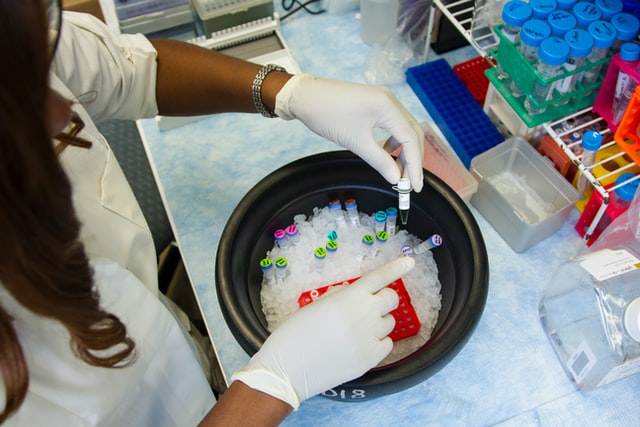The Alzheimer’s Drug, Oligomannate, approved in China and derived from seaweed, is now being studied in the U.S. in a Phase 3, multi-center clinical trial that is actively recruiting participants.
Oligomannate, a drug made from seaweed and used for the treatment of Alzheimer’s Disease, has been available to patients in China since 2019. Now, the unique drug is being studied in the United States in the Green Valley 971 Evaluation Memory, or GREEN MEMORY, clinical trial, a Phase 3 study actively recruiting participants to 32 different locations across 12 states.
Research on the marine-derived oligosaccharide as an Alzheimer’s therapeutic goes back nearly two decades. Early in-vitro studies provided evidence that oligomannate inhibits the build up of beta-amyloid, the protein which makes up the plaques found in an Alzheimer’s brain. The drug was also shown to destabilize existing beta-amyloid aggregates into non-toxic conformations.
Interestingly, recent work in Alzheimer’s mouse models showed that oligomannate can remodel gut microbiota, in turn keeping neuroinflammation at bay and rescuing cognitive impairment. This mechanism could potentially separate oligomannate from the rest of the pack as most other drug candidates have solely targeted beta-amyloid.
Dr. Michelle Papka, director of the Cognitive and Research Center of New Jersey, one of the many location sites of the GREEN MEMORY trial, told NJ.com, “First come the plaques, and then come the tangles, but then comes the third ingredient of neuro-inflammation…[this] piece seems to be where people can take a much more active role in trying to change their trajectory.”
Between 2014 and 2018, Green Valley Pharmaceutical Company sponsored a Phase 3 clinical trial across China, in which 818 participants with mild to moderate Alzheimer’s Disease were randomized to receive either oligomannate or placebo for 36 weeks. Participants who received the drug exhibited statistically significant improvement on the Alzheimer’s Disease Assessment Cognitive Subscale (ADAS-Cog12), the primary outcome measure of the trial, which assesses one’s ability to perform tasks such as recalling and recognizing words, following commands, comprehending language, and remembering instructions. This significant difference in cognition between the treated and non-treated groups was observed in as early as four weeks and persisted with each follow-up assessment.
Unfortunately, all secondary outcome measures, including PET scan analyses, did not yield significant results. Regardless, the promising conclusions from this trial led to the approval of oligomannate in China and of the larger-scale GREEN MEMORY trial in the U.S..
Now, the GREEN MEMORY Phase 3 clinical trial is recruiting over 2,000 participants between the ages of 50 and 85 years with a diagnosis of mild to moderate Alzheimer’s to participate at trial centers in California, Florida, Georgia, Michigan, Nebraska, New Jersey, New York, North Carolina, Ohio, Oregon, Pennsylvania, and Virginia. Individuals must also have a history of cognitive and functional decline over at least one year, a Mini Mental State Exam (MMSE) score between 11 and 24, and a brain MRI scan indicative of Alzheimer’s Disease. Those who have been diagnosed with a form of dementia other than Alzheimer’s, experienced major illness or unstable medical condition within the past six months, or have a poorly functioning heart, liver, or other organ, are not eligible to participate.
Additionally, in order to accurately determine the effects of oligomannate, participants must not be taking other Alzheimer’s medications such as donepezil or memantine. Papka told NJ.com, “That’s a little more challenging because the standard of care is to put people on donepezil and later on they may end up getting memantine. Doctors don’t necessarily want their patients to come off those medications.”
However, the GREEN MEMORY trial might be a great fit for those who were more recently diagnosed, have chosen not to take these medications, or are unable to due to severe side effects.
Participants in the GREEN MEMORY trial will be randomly assigned to receive oligomannate or a placebo for an entire year. The trial will then shift to an “open-label” phase and every participant will receive oligomannate for the next six months. In other words, all participants are guaranteed to receive the drug following the 52-week placebo-controlled study period. However, those who receive the placebo might not have to wait that long to start reaping the benefits of the study.
A strong placebo effect was observed in the Phase 2 trial; many participants who were taking placebo pills still showed improved cognition throughout the course of the study. Researchers believe that the tone and emotional presence of a clinician and the support and engagement involved in consultations during the trial can directly shape clinical outcomes.
It is still unknown if oligomannate is actually influencing the structure of the brain or the presence of beta-amyloid and tau proteins. Papka told NJ.com that the GREEN MEMORY trial is hoping to add convincingly to evidence in favor of the drug, “and also to get more data on the biomarkers of Alzheimer’s Disease,” she says. The trial will evaluate the effect of Oligomannate on brain structure neurodegeneration by measuring changes in volumetric magnetic resonance imaging (MRI).
If the GREEN MEMORY trial is successful, oligomannate could be approved for use in the U.S. in 2025.
Per the NIH National Library of Medicine, individuals interested in learning more about enrolling in the study should contact the Shanghai Greenvalley Pharmaceutical Co., Ltd. research staff (847-616-





I have been diagnosed with MCI. I am very interested in enrolling in a Study specific to Alzheimer’s disease. Please advise if you can help.
Thank you.
Hello my mom was just recently diagnosed with AD, she has tried aricept with horrible side effects. Very interested if you are still looking for recipients